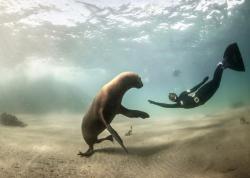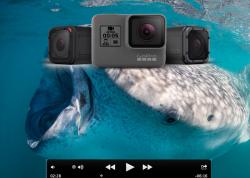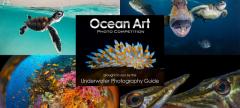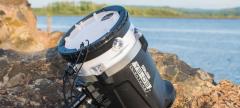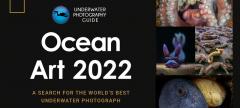Shooting Great Portraits of Sharks
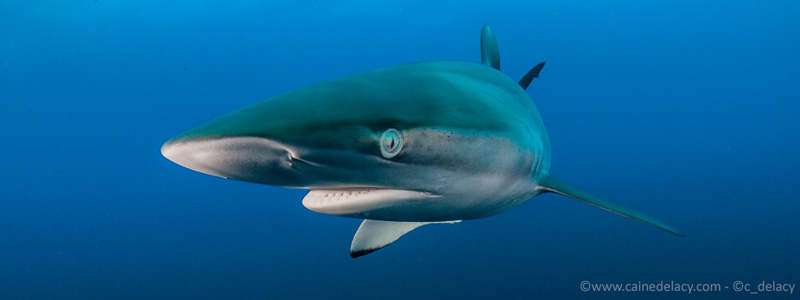
There are a lot of opportunities to photograph sharks in the world, but getting a shot unlike others can be difficult task. If you’re aiming to get a unique shot that is likely to capture people’s attention, then some of these rules may help with that.
Look Through the Viewfinder
I often see divers with cameras ‘shooting from the hip’ so to speak, especially around sharks. Street photographer Mark Cohen shot over 800,000 images from his hip through the streets of New York and made a career out of not looking through the viewfinder, but underwater photographers don’t have this luxury of ample time. We are limited to encounters, only during dives, only during trips. Shooting from the hip is a poor waste of precious bottom time, since you are unlikely to frame your shark well well enough to create a compelling composition. You’ll have a higher rate of out-of-focus shots, or those shots where the dorsal fin is in focus but the eye is not. So make sure to use your viewfinder!

A classic example of not looking through the lens, or perhaps not having time to readjust the focus point on the camera as the shark entered the cage. Nonetheless, expect images that are soft, or with the in-focus part of the subject not as you wished when not looking through the camera.

By looking through the viewfinder (and getting half my body out of the cage to get closer), I was able to target the eye for this shot and get the focus spot on.
While we’re on the topic of shooting from the hip, another reason not to do this underwater is to follow a lesser-known rule of portrait photography. Steve McCurry of ‘Afghan Girl’ fame uses the following intriguing and subtle technique to create some of the most compelling portraits ever photographed. The technique has likely been part of his great success in shooting captivating portraits of people all over the world for decades, and there’s no reason why it can’t work for sharks. What is the technique? It is as simple as placing the dominant eye in the center, or on the vertical center of the frame. Yes, this could somewhat go against the rule of thirds and conventional wisdom, but to get into the soul of a human (or animal) this is a sure fire way to capture the essence of that being. Try doing that without looking through your viewfinder!

To frame this shot, I had to wait for the shark to come towards me. Since it was so far off, I would not have been able to compose this image without looking through the viewfinder.
Wait for the Right Moment
While strobes are getting faster and faster at refreshing their power for the next frame, you never want to rattle off those 3-5 frames at the peak moment, only to have the first two lit-up and the 3rd or 4th failing. And as fate would have it, it seems that it’s always those later frames that are the keepers. So be selective when that shark is coming near you. Don’t start firing off frames until the frame you are anticipating and have imagined is about to occur - the peak moment.
In addition to saving strobe bursts for the right moment, waiting also allows you to observe the sharks and their behavior, and also gives you time to compose the image. Sharks are smart, attentive, and curious, but they are wary too. If you are shuffling around, doing 360’s to try and photograph everything, then the shark might want to have little to do with you. But by being slow and deliberate in your movements and keeping a calm heart rate, and breathing slowly, that elusive shark will come closer and closer on each pass, and hopefully close enough to nudge your dome port!

This is an example of good fortune, I burnt my strobes’ recycle rate before this frame so they didn’t fire, but given the clear water I was able to recover the shot and got a unique perspective of this sharks oversized pectoral fins.

To get this shot, instead of trying to get every shot of every shark that happened to be near us, I focused on watching the sharks’ behavior, and as they were swimming in opposite directions I decided to try to get them crossing paths. I would have missed this shot if I kept going for one or the other sharks in the vicinity.
Imagine, Plan, Execute
Many moments underwater are unpredictable and are often the product of a chance encounters. But as a photographer, you should always have a catalogue of shots in your mind that you imagine getting if that chance encounter occurs. Yet the challenge lies in thinking of an exciting new way to shoot a subject that has been photographed thousands if not millions of times. Think of Emma the (iconic) tiger shark at Tiger Beach.
With some forethought, planning, and imagination you may find yourself looking through the view finder at a moment, and a composition that no-one else has ever seen. Even now, every year there seems to be that one shot of a hammerhead or tiger shark taken at a popular destination that I’ve never seen before. This is not to say that these unique images are always planned, but planning never hurts.

I had the opportunity to shoot baby blacktip reef sharks while in the Seychelles, doing research, and they were very inquisitive, however all my side profile shots never get that feeling across. I decided to get low and try get the shot from the shark’s perspective. I was rewarded with a very curious approach from a very small shark about 2 ft long.
Enjoy the Moment
If all that the shark(s) is doing is swimming around you, not coming in close, and all you can mange to get are side profile shots, it’s time to put the camera down for a moment and just watch these amazing animals swim around you. You only have limited bottom time, so don't waste it getting side profile shots, spend it logging that moment to your memory, and who knows, you may observe a behavior or trait that will help you get the shot next time.
Book the Perfect Shark Dive Trip
Bluewater Travel can help you plan and book the perfect Shark Dive Trip.
Email bookings@bluewaterdivetravel.com for more info.
Further Reading
Author's Gear Profile
Nikon 17-55mm Lens
RECOMMENDED ARTICLES
SUPPORT THE UNDERWATER PHOTOGRAPHY GUIDE:
The Best Service & Prices on u/w Photo Gear
 Visit Bluewater Photo & Video for all your underwater photography and video gear. Click, or call the team at (310) 633-5052 for expert advice!
Visit Bluewater Photo & Video for all your underwater photography and video gear. Click, or call the team at (310) 633-5052 for expert advice!
The Best Pricing, Service & Expert Advice to Book your Dive Trips
 Bluewater Travel is your full-service scuba travel agency. Let our expert advisers plan and book your next dive vacation. Run by divers, for divers.
Bluewater Travel is your full-service scuba travel agency. Let our expert advisers plan and book your next dive vacation. Run by divers, for divers.




